I’ve been asked the question: How can you respond to a Muslim who uses Matthew 12:40 as proof that Jesus didn't die on the cross?
In order to answer this question, you have to realize that Muslims believe the Qur’an teaches that Jesus didn’t die. Therefore, they look for ways, even in the gospels, to try to show that is the case because they believe the Gospel is a divine revelation from Allah.
Matthew 12:40 is the story where some of the Pharisees come to Jesus and say to him, “Give us a sign. Give us some proof that you are who you claim to be.” Jesus responds by saying, “I will give you no sign except for the sign of Jonah. For just as Jonah was in the belly of the fish for three days and three nights, so the Son of Man will be in the earth for three days and three nights.”
The Muslim says, “Look, did Jonah die when he was in the belly of the fish?” And of course the answer is, “No.” And he says, “See, Jesus is saying just like Jonah was in the belly of the fish for three days and three nights and didn't die, so the Son of Man will be in the earth for three days three nights and he also will not die.”
They’re using this as an argument to prove that Jesus actually didn't die. Or at least they're making this an argument that the gospels teach Jesus didn't die.
The first problem with this approach is that in analogy, which is what Jesus is doing when he talks about himself being like Jonah, the goal is not to show that everything between one thing and the other thing is identical. I believe what Jesus was saying was that he will be in the earth, or dead, for three days just like Jonah was in the belly of the fish for three days, not that he also will die. It's important to realize that in an analogy, it’s not necessarily the case that everything that is true of one person is also going to be true the other person. Some things aren’t going to carry over, and that's okay. That's how an analogy works.
Second, if the Muslim is going to listen to what the gospel of Matthew says in Chapter 12, then perhaps they should jump four chapters later in Matthew 16 and see that Jesus says to his disciples, “I have to go to Jerusalem and suffer and be killed, and on the third day I'll rise again.” So Jesus, in that chapter, predicts his death and resurrection. That's in no uncertain terms. Jesus makes that plainly clear.
Furthermore, in Matthew 27, we see that Jesus is actually crucified, and the Romans were really good at crucifixion. They didn't often fail at killing people. So we also know that Jesus died because Matthew 27 teaches that. So if the Muslim cares about what Matthew 12 says, they should also consider what Matthew 27 says.
In fact, Jesus even says while he’s hanging on the cross, “Lord, into your hands I commit my spirit,” and he lets out a large cry, and he dies. It's pretty obvious that happened. Then in chapter 28 when people come to the tomb and witness that the tomb is empty, an angel appears and says, “Why are you looking for Jesus here? He has risen from the dead.” Again, you can't rise from the dead unless you died in the first place.
I would say to the Muslim who says that Matthew chapter 12 and the whole story about the sign of Jonah makes a case that Jesus didn’t die, that in these other parts of Matthew we have clear, even more decisive evidence that Jesus did die. He predicts his death, he actually dies, and then the angel even affirms that he rose from the dead. Of course, this is nothing to say of the other gospels, which also affirm that. Jewish and Roman historians like Tacitus and Josephus also affirmed that Jesus died by crucifixion. So we have plenty of reason to think that Jesus did actually die.

Discussing Jesus' Death with Muslim Friends
October 19, 2015 • Alan Shlemon
More from
Video Blog
Red Pen Logic: Atheist Disproves Immaterial God by Assuming Materialism
May 13, 2020 • Tim Barnett
Questions are a legitimate way to get people to think. But if questions subtly create confusion, fallacy, or error, they only serve to conceal the truth rather than reveal the truth. Atheist Forum provides three questions designed to raise doubt about the existence of God. But, to get the answers they want, they rely on an incoherent question (strike one), circular reasoning (strike two), and a confused complaint (strike three).




